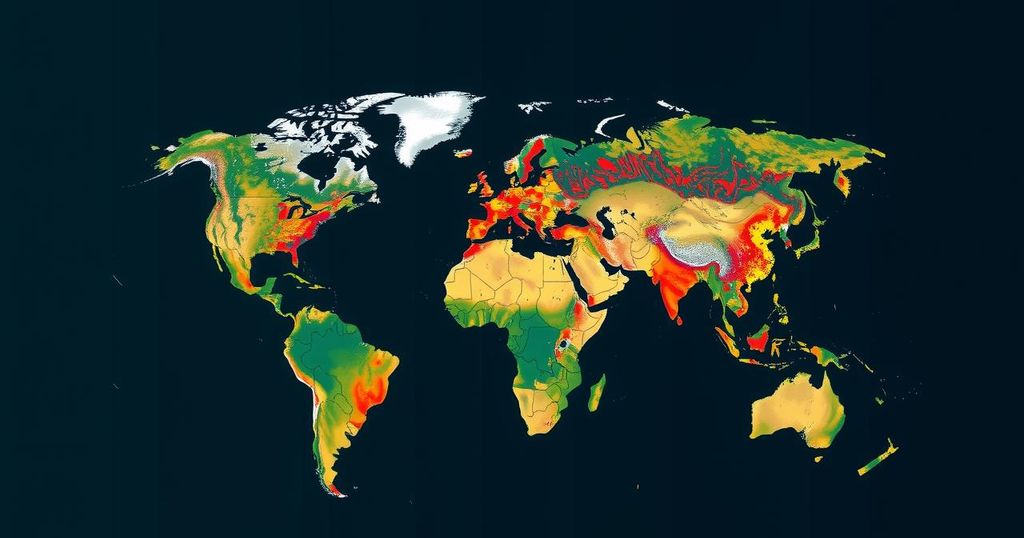Climate Change Driving Record Threats to Health, According to Report

A new report indicates that climate change poses unprecedented threats to global health, with significant increases in heat-related mortality, the spread of infectious diseases, and food insecurity issues. Key indicators show alarming trends across multiple domains, while the report highlights the importance of timely action to address these escalating health risks. Progress in reducing pollution has been noted, yet substantial work remains to ensure the protection of public health against climate-related adversities.
A recent report highlights escalating health risks driven by climate change, stating that the consequences of inaction have resulted in significant loss of life. This alarming assessment emerges amid unprecedented global weather phenomena, with 2023 projected to be the hottest year recorded to date. The report, released ahead of the COP29 climate negotiations in Azerbaijan and amidst a pivotal US election, emphasizes that out of the 15 health and climate indicators monitored over the past eight years, 10 have reached alarming new extremes. Key trends include a significant increase in extreme weather events, rising mortality among the elderly due to heat exposure, expanding reservoirs of infectious diseases, and threats to food security from droughts and floods. Marina Romanello, the executive director of the Lancet Countdown on health and climate change, indicated that healthcare systems are facing record challenges across all nations. Specifically, mortality due to heat among individuals over 65 has surged by 167 percent since the 1990s, while the scope and transmission of diseases such as dengue have expanded dramatically. The report also uncovered concerning environmental changes, including a reduction of around five percent in global tree cover between 2016 and 2022, which hinders natural carbon dioxide absorption. Furthermore, it scrutinizes the actions of oil and gas sectors alongside governmental entities that continue to exacerbate climate conditions, noting a rise in fossil fuel production amid record profits. Fossil fuel subsidies reached an astounding $1.4 trillion in 2022, overshadowing global commitments for sustainable transitions. Nonetheless, Romanello asserts that progress in pollution reduction is evident, with deaths from fossil fuel-related air pollution declining by nearly seven percent in a span of five years and the share of renewable energy sources for power generation nearly doubling within the same timeframe. Additionally, there are indications that climate discussions are increasingly recognizing health implications, exemplified by engagements in upcoming COP events. Romanello stressed the critical need for timely action, remarking, “There is really no more time to waste… the wasted time has been paid in lives.” She urged individuals to embrace lifestyle changes that support climate health, including adopting sustainable diets, reducing reliance on fossil fuels, and advocating for responsible political leadership regarding climate action.
The ongoing climate crisis presents profound challenges to public health around the globe. Research has indicated that climate change manifests through extreme weather events which are becoming increasingly frequent and severe. Rising temperatures, excessive flooding, and prolonged droughts significantly affect the population’s health by exacerbating conditions like heat-related illnesses, food insecurity, and vector-borne diseases. The Lancet Countdown report, produced by 122 experts, draws attention to these grave health risks, urging immediate policy responses and individual action to mitigate future crises. This report arrives at a historically crucial time, coupled with the anticipated COP29 climate negotiations and shifts in political landscapes that could influence climate policies and health outcomes.
The Lancet Countdown report underscores the urgent need to address the health ramifications of climate change as it outlines a record surge in health threats influenced by environmental degradation. With significant statistics revealing alarming trends in mortality and disease proliferation, the warnings from experts reinforce the necessity for immediate global action. The findings of this report serve as a clarion call for comprehensive policies and individual accountability to forge a healthier and more sustainable future for all nations.
Original Source: jen.jiji.com







